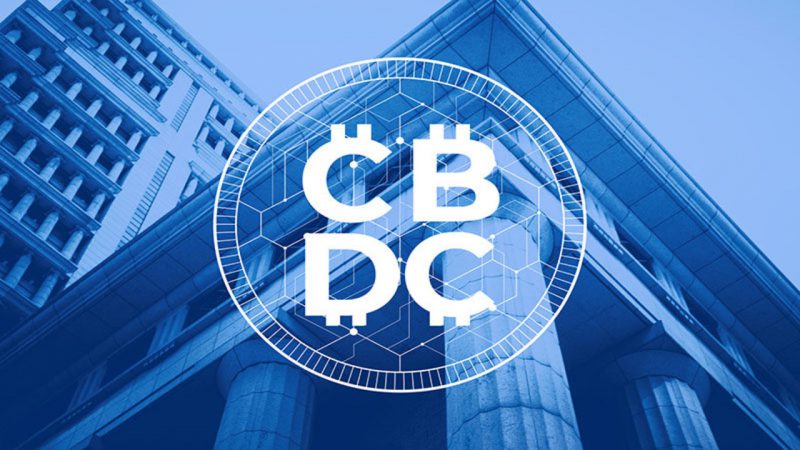Several countries across the world have been making strides on the CBDC research and development front. Last week, Brazil’s central bank picked 14 institutions to take part in the pilot program of its CBDC. Prominent companies like Visa and Microsoft had been selected to participate.
Prior to that, the Hong Kong Monetary Authority announced the launch of its e-HKD Pilot Program. Around 16 firms from the FinTech sector are set to take part in the trial run of Hong Kong’s CBDC program, with Ripple Labs being the only representative from the crypto industry.
In fact, going forward, CBDC adoption and use are expected to rise. More so, because this form of payment offers “reliable sources of digital currency backed by central banks for consumers, businesses, and governments.” In fact,
“According to a new report from Juniper Research, the global value of central bank digital currencies (CBDCs) will grow dramatically from $100 million today to $213 billion by 2030.”
Also Read: CBDC: Brazil’s Central Bank Picks Visa, Microsoft & 12 Others for Pilot
Viewing CBDCs from the U.S. Point of View
The state of affairs in the U.S. is not the same. The Federal Reserve doesn’t essentially plan to issue a digital dollar. Even so, several stalwarts from the political realm are already voicing out against the very concept.
Recently, Governor Ron DeSantis went on to propose legislation to ban the use of CBDCs in Florida. Specifically, he said, “The Biden administration’s efforts to inject a Centralized Bank Digital Currency is about surveillance and control.” Texas parallelly introduced a bill to ban CBDC in the state. In fact, Senators like Ted Cruz feel that CBDCs are “profoundly dangerous” to society.
Now, in a recent column in Project Syndicate, Yanis Varoufakis, the Former Minister of Finance of Greece chalked out how the current banking system in the U.S. is on guard when it comes to CBDCs. In fact, he went on to draw parallels with smoking restrictions.
Just like how cigarette companies rued the rise of smoking restrictions, Varoufakis noted that JP Morgan and the other too-big-to-fail (TBFT) banks perceive CBDCs as a government-backed threat against their business. Specifically, he wrote,
“Once upon a time, the greed of tobacco companies was channeled through libertarian outrage over the restriction of smokers’ freedom to choose cancer. This time, the outrage is serving the interests of bankers panicking at the prospect of Fed accounts. Dimon and other masters of the TBTF universe are right to be scared, because a Fed CBDC would threaten their empire building.”
He added,
“And bankers around the world are right to fear that many of their lucrative services would no longer be required. With those services – holding deposits, processing payments, and so on – “disintermediated,” they would suddenly be unable to hold societies’ hostage.”
Who’s Afraid of Central Bank Digital Currencies? by Yanis Varoufakis @ProSyn https://t.co/21Z6u5b4KO
— Yanis Varoufakis (@yanisvaroufakis) May 16, 2023
Also Read: Would CBDCs eventually lead to the demise of Crypto?
Is Aggression against CBDCs justified?
Varoufakis noted that we’re already living in a technology-feudal society. Here, we need to ask banks, and indirectly the government, for permission to pay. Digital payments can be centrally prohibited by credit card companies, banks, bureaucrats, and other unaccountable, opaque intermediaries.
Counterintuitively, CBDCs can “enhance” citizens’ privacy and shield them from centralized power, according to Varoufakis. Checks and balances can be introduced based on two separate data-management systems. The former Finance Minister of Greece suggested that the system that manages Fed accounts can be made totally anonymous, just like how crypto accounts are. On the other hand, a separate system supervised by relevant authorities can check for illicit activity like tax evasion and money laundering. He wrote,
“Thus, a proper and democratically controlled CBDC rollout can bring the combined benefits of strengthening tax collection, fighting deflation, and enhancing protection against Big Brother (and his many little brothers).”
Also Read: Ripple Witnessed 4 Wins This Week: XRP Turns Bullish





